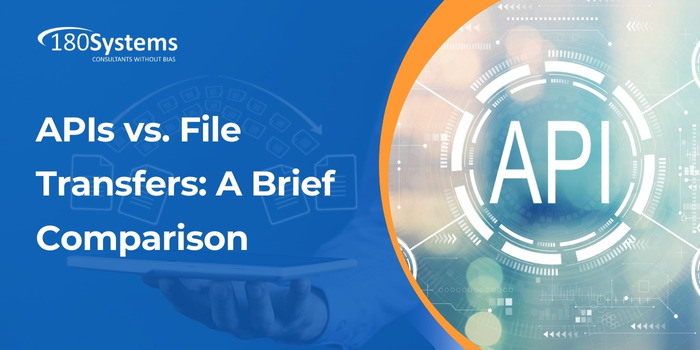In the world of data exchange between systems, two common methods stand out: Application Programming Interfaces (APIs) and file transfers. Each has distinct use cases, advantages, and limitations, making them suitable for different scenarios depending on the needs of the system or organization.
What is an API?
An API is a set of rules that allows software applications to communicate with each other in real time. They are ideal for real-time, interactive data sharing and are commonly used in web applications, mobile apps, and cloud services.
Pros of APIs:
- Real-time data access
- Can apply business logic in importing data
- Better error handling and monitoring
Cons of APIs:
- Requires programming knowledge to implement
- Dependent on uptime and reliability of both systems
- Not always available
- They will be more expensive to implement
What is File Transfer?
File transfer typically involves moving structured files (like CSV, Excel, or XML) from one system to another. This method is common in legacy systems, batch processes, or when large volumes of data need to be shared periodically.
Pros of File Transfers:
- Simple to implement, especially for large data sets
- Good for batch processing
- More universally supported across older systems
Cons of File Transfers:
- Not real-time—data may be outdated by the time it’s used
- Harder to track and secure without additional systems
- Prone to issues if file structures change
- Not applying business logic to validate data
What should be used when integrating an ERP system to existing applications?
APIs are generally more suitable for modern, real-time integrations, while file transfers are better for periodic, bulk data importing. But like most decisions, cost will be a factor and there may not be business case to invest in an API. However, don’t choose a phased approach with file transfers for phase 1 and API’s for phase 2. You could be very surprised and upset with the costs of phase 2 integration.

Been seeing Winzir.ph pop up a lot. Is it legit? Or just another flash in the pan? Let me know! winzir.ph
Okay, X666… That’s a pretty intense name. Is it as wild as it sounds I am intrigued. x666
Stumbled upon 33phdream the other day. Gave it a shot and not bad at all! Worth a punt if you’re lookin’ for somethin’ new. Get on it! 33phdream
Alright, so I gave 31pattilucky a whirl. Not bad, not bad at all. If you’re feeling lucky, why not give it a go? Maybe you’ll strike it rich, who knows! Give it a try here: 31pattilucky
Thought I’d give aaa999bet a try and I’m not disappointed. They have a good selection of games. Seems pretty solid. Might stick around for a while! aaa999bet
The games on lucky67game are honestly quite fun! And the promotions that it offers throughout the week made me hooked! This is all I needed to keep my attention to the site. lucky67game